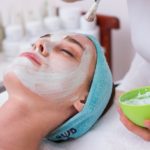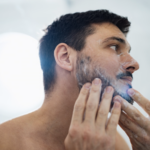The beauty and skincare industry has long been characterised by diverse products targeting specific demographics. The distinction between men’s and women’s skincare products is one of the most pronounced. From moisturisers and serums to cleansers and exfoliants, the question often arises: do men and women really need different skincare products? Understanding the biological, physiological, and environmental factors can help us navigate this intricate landscape.
Biological Differences in Skin
Fundamentally, biological differences between male and female skin can influence skincare needs. Male skin is typically thicker, about 25% more than female skin, due to higher collagen density. It also produces more sebum, which can contribute to a higher incidence of acne and larger pores. Additionally, daily shaving can impact men’s skin health, potentially leading to increased sensitivity and irritation. These factors suggest that men might benefit from products that offer deeper cleansing and are formulated to address higher oil production and irritation from shaving.
Women’s skin, on the other hand, tends to be more prone to hormonal changes, especially related to menstruation, pregnancy, and menopause. These changes can affect the skin’s elasticity, moisture levels, and overall texture. Therefore, women’s products often contain ingredients that target elasticity and moisture retention and address fine lines and hormonal acne concerns.
Marketing Tactics vs. Actual Needs
Much of what dictates the separation of skincare products into male and female categories is marketing. Using gendered packaging and scents plays a significant role in consumer behaviour. Men might gravitate towards products that emphasise strength and resilience, often presented in darker, more ‘masculine’ packaging. Women’s products, meanwhile, are frequently marketed with a focus on gentleness, rejuvenation, and are often scented with floral or fruity undertones.
However, the fundamental ingredients important for skin health — such as hyaluronic acid, retinol, and vitamin C — are effective regardless of gender. Both men and women benefit equally from these essential ingredients, which suggests that the distinction in many products might be more about marketing than scientifically based differences.
Environmental and Lifestyle Factors
Environmental factors such as sun exposure, pollution, smoking, and lifestyle choices like diet and hydration, significantly affect skin health. Both men and women should consider these factors when choosing skincare products. For example, a person who spends a lot of time outdoors should use products with higher SPF. At the same time, someone living in a polluted city might look for products that offer antioxidants to combat environmental aggressors.
What Skincare Products Should Men and Women Use?
Cleansers
A gentle cleanser is fundamental for removing dirt, excess oil, and impurities without stripping the skin of its natural oils. Look for cleansers with hydrating ingredients like glycerin or hyaluronic acid that maintain moisture balance while cleansing.
Moisturisers
Everyone needs a good moisturiser to keep the skin hydrated and protected. Opt for a lightweight, non-comedogenic moisturiser if you have oily or acne-prone skin. For dry skin, a richer formula with ceramides or hyaluronic acid can provide more intense hydration.
Sunscreens
Sunscreen is crucial for protecting the skin from harmful UV rays, which can lead to premature ageing and increase the risk of skin cancer. Both men and women should use a broad-spectrum sunscreen with an SPF of at least 30 every day, regardless of the weather.
Exfoliants
Products containing AHAs (like glycolic acid) or BHAs (like salicylic acid) are excellent for promoting cell turnover, brightening skin tone, and clearing pores. These can be beneficial in managing acne, reducing fine lines, and improving skin texture.
Antioxidants
Serums or treatments that include antioxidants like vitamin C, vitamin E, or green tea extract help to protect the skin from environmental damage, brighten the skin tone, and promote collagen production.
The Importance of Body Butter for Men and Women
One product that exemplifies the universality of skincare needs is body butter. Ideal for both men and women, body butter is a rich moisturiser that is particularly effective for dry and rough areas of the body. It typically contains combinations of shea butter, cocoa butter, and essential oils that deeply nourish and hydrate the skin.
For men, the moisturiser can be an excellent solution for dryness caused by frequent showering, air conditioning, and harsh weather conditions, which are common irritants. It can also soothe the skin after shaving, reducing redness and preventing flaking. For women, body butter supports skin elasticity. It can help prevent the signs of ageing, especially on areas like elbows, knees, and feet, where the skin can dry and thicken.
Both sexes benefit from the protective barrier that moisturising butter creates on the skin, which helps to retain moisture and protect from environmental factors. Its versatility and intensive moisturising properties make it a valuable addition to anyone’s skincare regime, emphasising that the need for effective moisturisation transcends gender boundaries.
The decision to use different skincare products should be more about individual skin types, concerns, and preferences rather than strictly adhering to gender-based products. While biological differences might influence the skin’s needs slightly, the basic principles of good skincare apply universally. Effective ingredients benefit all, regardless of gender. As the beauty industry evolves, perhaps we will see a shift towards more unisex products that focus on skin health and function rather than gender distinctions.








 The Signs and Symptoms of Addiction: How Rehab Centers Will Change Your Life for the Better
The Signs and Symptoms of Addiction: How Rehab Centers Will Change Your Life for the Better